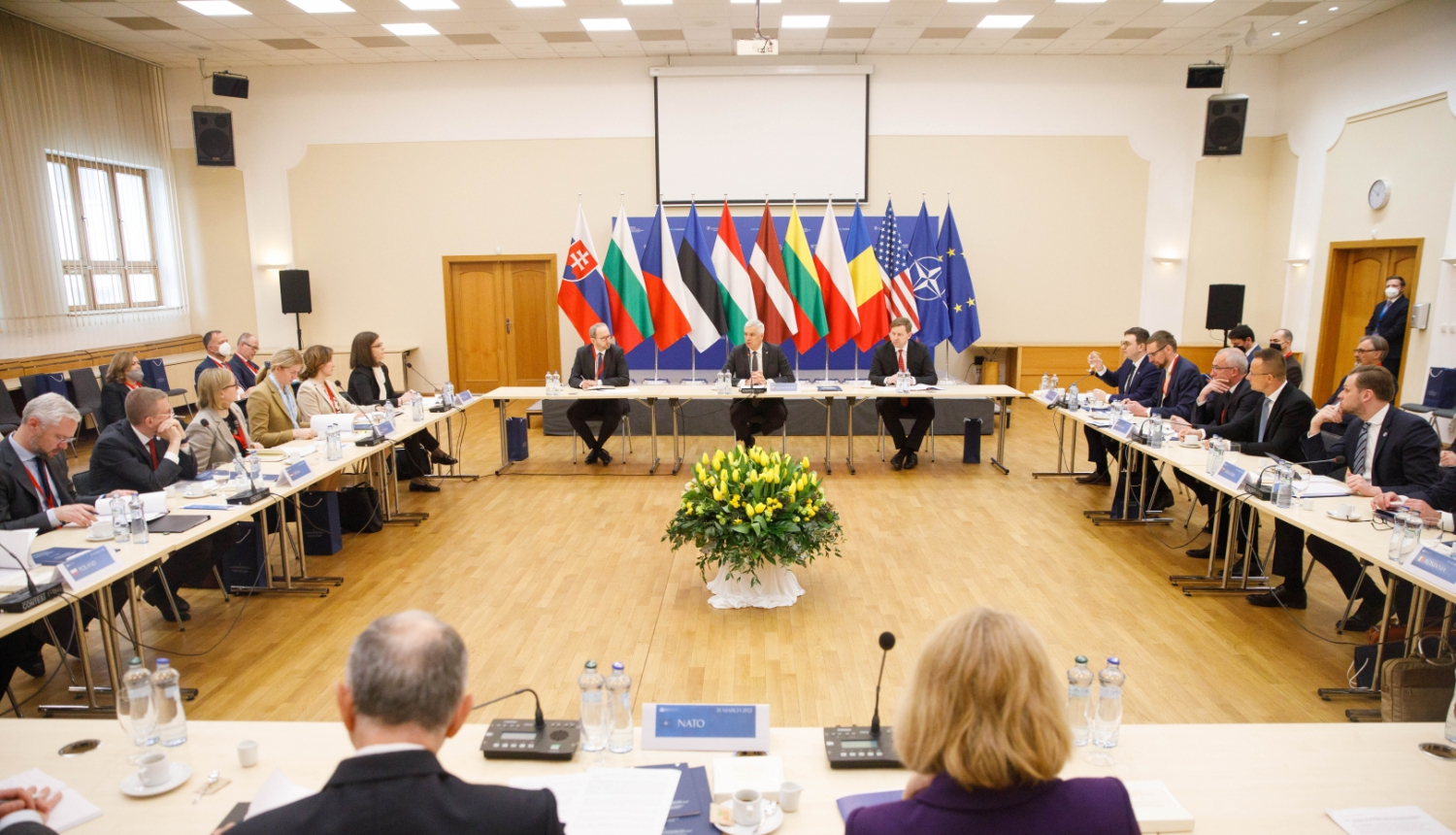On 31 March 2022, the Minister of Foreign Affairs of Latvia, Edgars Rinkēvičs, participated in the Bucharest Nine (B9) meeting of Foreign Ministers in Bratislava, Slovakia. The ministers discussed Russia’s aggression against Ukraine, regional security issues, preparations for the next meeting of NATO Heads of State and Government to be held in Madrid in June, as well as providing further support for Ukraine.
Taking part in the meeting were NATO Deputy Secretary General, Mircea Geoană, and the U.S. Assistant Secretary of State for European and Eurasian Affairs, Karen Donfried, while the Ukrainian Foreign Minister, Dmytro Kuleba, addressed the ministers via video conferencing.
Europe is facing a new geopolitical reality. Strategic security environment has changed cardinally since 24 February this year. At the same time, transatlantic unity and solidarity are the most powerful weapons for NATO and the European Union at the time when Russia is waging a brutal war in Ukraine. The ministers agreed that it was vital to pursue close coordination with the Allies in both providing support for Ukraine and sustaining an unwavering policy of sanctions and international isolation against Russia and Belarus. Edgars Rinkēvičs noted that Ukraine could not win the war by itself. We must not accept current situation, he said; instead, a cessation of hostilities must be achieved by all possible means through international pressure. It is the sovereign will of the Ukrainian state that should determine the Ukraine’s security options, the Minister underlined.
In a discussion on the agenda of the upcoming meeting NATO Heads of State and Government in Madrid, which is to focus on the approval of NATO’s next Strategic Concept and the long-term defence and deterrence measures of the Alliance, including in its eastern flank, Edgars Rinkēvičs underlined the crucial importance of NATO’s strong collective defence in deterring Russia from aggressive actions in our region, especially in relation to defence and deterrence in NATO’s eastern flank.
As concerns NATO Strategic Concept, the Minister underlined that it was important to Latvia that the document be comprehensive and present the strategic security environment in keeping with the actual security situation. At the same time, the Strategic Concept should envisage the Alliance’s successful political and military adaptation in the coming decade, including the strengthening of resilience and preparedness, and in the field of new technologies.
The Bucharest Nine (B9) format comprises Bulgaria, the Czech Republic, Estonia, Hungary, Latvia, Lithuania, Poland, Romania, Slovakia.




